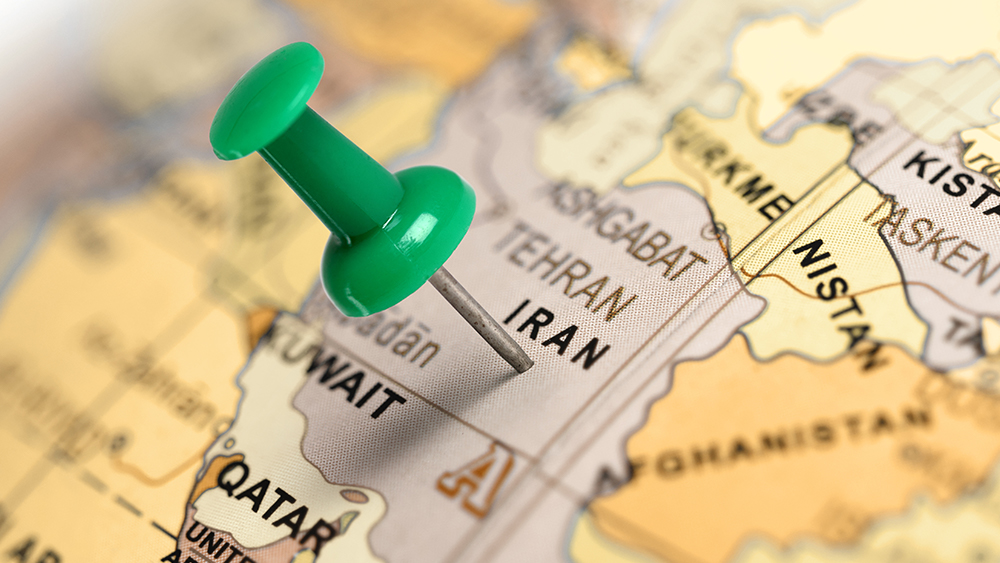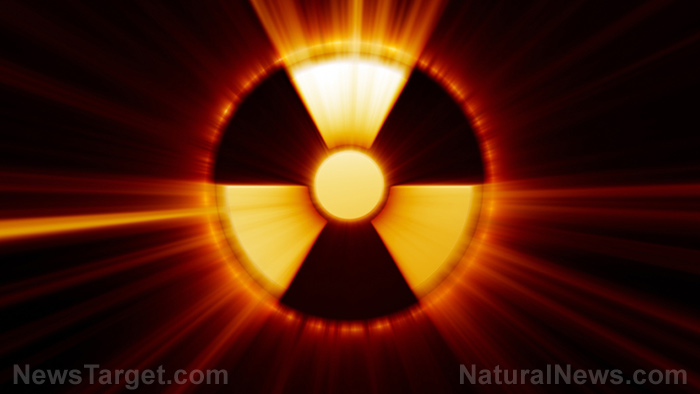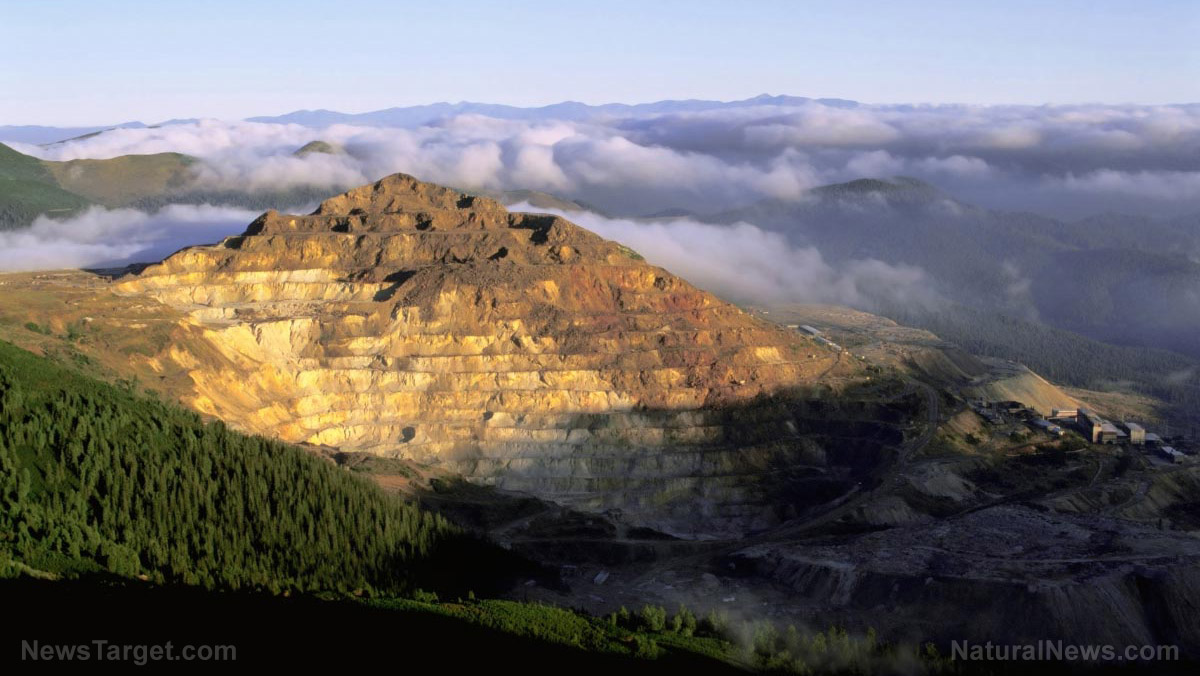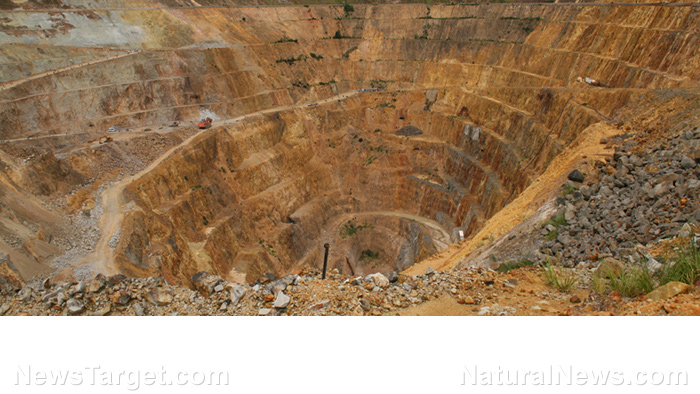Report: Iran may be able to create a nuclear weapon WITHIN A WEEK
02/09/2024 / By Richard Brown

A new report from the Institute for Science and International Security has raised significant concerns about Iran’s nuclear capabilities, suggesting that the country now possesses sufficient weapons-grade uranium to manufacture its first nuclear weapon in just one week.
Moreover, the report outlines a troubling scenario wherein Iran could potentially produce a total of six nuclear bombs within a month. (Related: Thanks, Obama: U.S. defense official declares Iran can construct a nuclear bomb ‘in about 12 days.’)
This unsettling revelation comes at a critical juncture as tensions in the Middle East escalate, creating a volatile environment that could empower Iran to expedite its nuclear ambitions. The Institute, known for its meticulous monitoring of Tehran’s atomic program, underscored the precarious nature of the current geopolitical landscape in its report.
The ongoing conflict between Hamas and Israel, with Iranian support for the former, significantly heightens the risk of Tehran aggressively pursuing the development of a functional nuclear weapon.
The United States, responding to the situation, has entered its third day of airstrikes against Iranian targets across the Middle East, adding fuel to an already intense regional situation.
This report marks a watershed moment, as it is the first time the Institute for Science and International Security has issued such a dire assessment since it commenced reporting on the Iranian nuclear program’s threat level in October 2022. The threat score, calculated at 151 out of 180, indicates a marked increase from the May 2023 score of 140.
The Institute points to Iran’s persistent progress in developing sensitive nuclear capabilities, extending beyond previous breakout levels.
The country’s ability to “break out” and generate enough weapon-grade enriched uranium within a week, utilizing only a fraction of its 60 percent enriched uranium, adds to the complexity of the situation. This potential breakout, if executed with deliberate measures to impede inspectors’ access, could pose challenges in prompt detection.
Compounding the issue is Iran’s refusal to provide international nuclear inspectors with full access to its contested enrichment sites, a stance that has only intensified over the past year.
Rafael Grossi, the director general of the International Atomic Energy Agency (IAEA), expressed frustration in January over Tehran’s unprecedented resistance to oversight.
The lack of transparency has led to a two-point increase in the threat level regarding Iran’s nuclear program compared to the May 2023 assessment.
The report also highlights Iran’s enhanced capability to enrich uranium, ranging from very low levels to those required for a nuclear bomb, raising the stakes even further.
With an expanding stockpile and ambitious plans to increase its enrichment program, including deploying advanced centrifuges and producing tens of thousands of kilograms of enriched uranium, Iran appears to be on a trajectory to rapidly amass enough weapon-grade uranium for a small nuclear arsenal.
The report concludes with a sobering observation that Iran possesses multiple delivery mechanisms, including ballistic missiles.
As international concerns mount, Iran’s announcement on Monday of commencing construction of a fourth homebuilt nuclear reactor serves as an additional indicator of the regime’s steadfast commitment to bolstering its atomic infrastructure.
Iran denying access to nuclear inspectors while continuing to amass enriched uranium
Last November, confidential reports from the IAEA revealed that Iran is persistently denying access to several experienced nuclear inspectors, while also amassing uranium enriched up to 60 percent purity – dangerously close to weapons-grade material—enough for three potential atom bombs.
The United Nations nuclear watchdog strongly criticized Iran’s decision to withdraw accreditation from several inspectors, a move announced in September, deeming it “extreme and unjustified.”
According to IAEA chief Rafael Grossi’s report to member states, Iran’s unprecedented stance significantly hampers the agency’s crucial work and runs counter to the required cooperation.
Last September, Iran withdrew accreditation for eight top inspectors, including individuals from France and Germany, attributing the decision to perceived “political abuses” by the U.S., France, Germany and Britain.
The IAEA report highlights Iran’s recent letter reiterating its position on withdrawing accreditation, asserting its right to do so while expressing openness to exploring possibilities to address the agency’s request for reinstatement.
Watch this episode of “Tommy’s Podcast” as host Tommy Carrigan and co-host Clare Lopez discuss the possibility that Iran may already have missiles with nuclear warheads.
This video is from the Tommy’s Podcast channel on Brighteon.com.
More related stories:
Iran launches missiles targeting alleged Israeli spy centers in northern Iraq.
Iran unveils new HYPERSONIC MISSILE in apparent warning to the U.S. and Israel.
Iran bars nuclear inspectors while stockpiling enriched uranium.
Sources include:
Submit a correction >>
Tagged Under:
big government, chaos, conspiracy, dangerous, enriched uranium, IAEA, Iran, metals, military tech, national security, nuclear, nuclear war, nuclear weapons, uranium, weapons technology, WWIII
This article may contain statements that reflect the opinion of the author
RECENT NEWS & ARTICLES
COPYRIGHT © 2017 HEAVY METALS NEWS




















